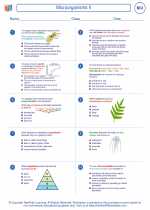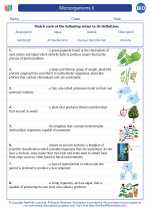Action-Reaction Law
The action-reaction law, also known as Newton's third law of motion, states that for every action, there is an equal and opposite reaction. This law is a fundamental principle in physics and has important implications in understanding motion and forces.
Explanation of the Law
When an object exerts a force on another object, the second object exerts an equal force in the opposite direction on the first object. This means that forces always occur in pairs.
For example, when you push against a wall, the wall pushes back on you with an equal force in the opposite direction. This is why you feel resistance when pushing against a solid object.
Study Guide
- Understanding the Concept: To grasp the action-reaction law, it's crucial to understand the concept of forces and how they interact with objects. Practice identifying action-reaction pairs in various everyday scenarios.
- Examples: Work through examples of action-reaction pairs in different situations, such as a rocket launching into space or a person walking on the ground. Understanding these examples will reinforce your understanding of the law.
- Free-Body Diagrams: Practice drawing free-body diagrams to represent the forces acting on an object and identify the action-reaction pairs in the diagram. This visual representation can aid in understanding the law.
- Real-World Applications: Explore real-world applications of the action-reaction law, such as how it applies to sports, transportation, and engineering. Understanding how this law influences everyday phenomena can deepen your comprehension.
- Problem-Solving: Solve problems and exercises related to action-reaction pairs. This will help you apply the law to different scenarios and develop problem-solving skills in physics.
By mastering the action-reaction law, you'll gain a solid foundation in understanding the fundamental principles of motion and forces in the physical world.
[Action-reaction Law] Related Worksheets and Study Guides:
.◂Biology Worksheets and Study Guides High School. Microorganisms II

 Worksheet/Answer key
Worksheet/Answer key
 Worksheet/Answer key
Worksheet/Answer key
 Vocabulary/Answer key
Vocabulary/Answer key
 Vocabulary/Answer key
Vocabulary/Answer key
 Vocabulary/Answer key
Vocabulary/Answer key
 Vocabulary/Answer key
Vocabulary/Answer key
 Vocabulary/Answer key
Vocabulary/Answer key
